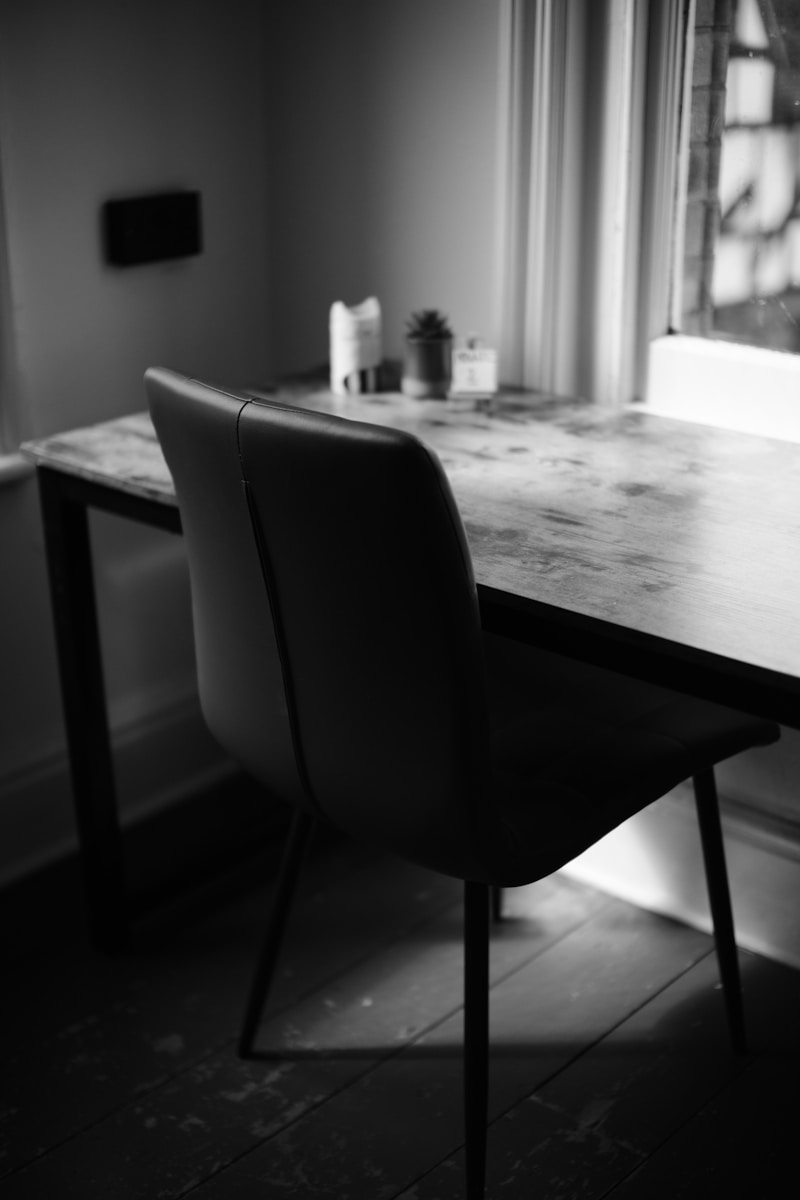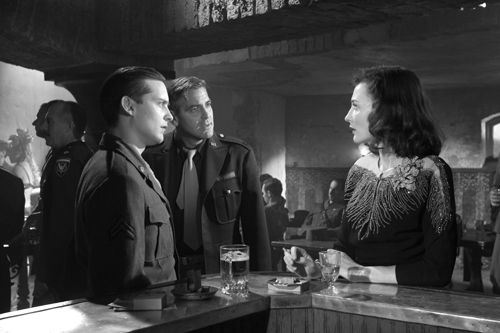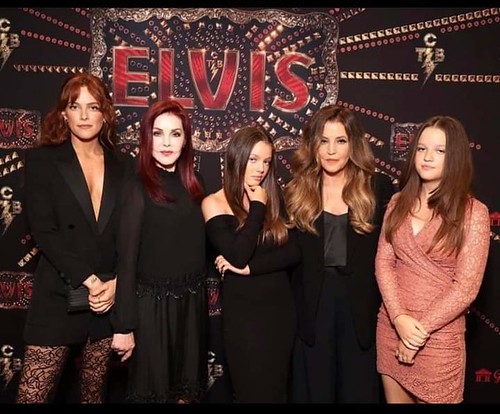
The story of Priscilla Presley and Elvis is one that continues to captivate generations, a whirlwind of rock-and-roll glamour, deep personal connection, and underlying complexities that are only now being fully illuminated. With the release of Sofia Coppola’s 2023 film ‘Priscilla,’ based on Priscilla Presley’s own 1985 memoir ‘Elvis and Me,’ and the anticipation of her latest book, ‘Softly, As I Leave You: Life After Elvis,’ we’re invited to look beyond the headlines and into the very heart of this iconic relationship.
This renewed focus has also brought to light some poignant and, at times, startling perspectives. Perhaps most notable is Lisa Marie Presley’s reaction to the film’s script, where she stated, “My father only comes across as a predator and manipulative.” This powerful sentiment provides a lens through which we can explore the dynamics of Priscilla and Elvis’s life together, examining the nuances that contributed to such an interpretation and the realities Priscilla herself documented.
In this first part of our in-depth look, we’ll dive into the early chapters of their life, from their initial, improbable meeting to the gilded, yet often isolating, world of Graceland. We’ll explore the tender moments, the subtle controls, and the pervasive influences that shaped Priscilla’s experience and laid the groundwork for a relationship that was anything but simple.

1. **The Beginnings: A Teenager’s Whirlwind Romance with a Superstar**Imagine being a 14-year-old living in West Germany, your father stationed in the U.S. military, when you meet the most famous man in the world. This was Priscilla Beaulieu’s reality in 1959. At a base party, she crossed paths with a 24-year-old Elvis Presley, drafted into the U.S. Armed Forces and at the absolute peak of his fame. The connection was almost instantaneous, a captivating blend of youthful awe and a superstar’s charm.
Despite the significant age difference and Elvis’s monumental celebrity status, the two began dating casually. Priscilla’s parents naturally harbored concerns, a sentiment that anyone could understand given the circumstances. Yet, the magnetic pull of Elvis was undeniable, drawing Priscilla into his orbit in a way that would define her life for decades to come. Their initial romance was a private whirlwind, shielded from the full glare of the public eye.
After his service, Elvis eventually returned to the U.S., leading to a period where he lost contact with Priscilla. For a young girl deeply smitten, this separation left her crestfallen. The dream of their connection seemed to fade, leaving her with the bittersweet memories of their time together and the uncertainty of what, if anything, would come next. It was a heart-wrenching chapter, but not the end of their story.
Then, in June 1962, Elvis reconnected with Priscilla, extending an invitation for her to visit him in Memphis, Tennessee, for a vacation. This gesture reignited their romance, pulling her back into his extravagant world. Before taking her to Las Vegas, he thoughtfully left pre-written postcards for her parents, to be mailed by his assistant—a subtle act that hints at the careful management of perceptions, even then.
By 1963, Elvis, professing his love, took a significant step by asking Priscilla’s parents if she could live with his father, Vernon, and stepmother, Dee, in Memphis, to attend a private Catholic girls’ school. Her parents agreed, and Priscilla moved to finish her senior year of high school, embarking on a life that most could only dream of, yet one that would soon reveal its unique challenges and profound transformations.
2. **Life in the Gilded Cage: Isolation and Controlling Dynamics at Graceland**Moving into Graceland as a teenager might sound like the ultimate fairy tale, but for Priscilla, it often came with an unexpected sense of isolation. While her time spent with Elvis when he was home was undoubtedly pleasant, she frequently found herself lonely while he was away filming in Los Angeles. The grand estate, for all its splendor, could feel like a very big, empty house, with only the house staff and Elvis’s paternal grandmother, Dodger, for company.
Priscilla’s new memoir, ‘Softly, As I Leave You: Life After Elvis,’ offers a candid glimpse into Elvis’s traditional view of marriage. She reveals that he expected her to be “pretty, submissive, and charming,” consistently catering to his needs before her own and, crucially, refraining from asking questions about his apparent infidelities. This expectation painted a clear picture of the dynamic he envisioned for their relationship.
This controlling dynamic wasn’t always overt but was often expressed through subtle yet powerful gestures. As Anthony Lane observed in The New Yorker, the film ‘Priscilla’ highlights an “agglomeration of things—purchases, ornaments, and textures,” including “an array of outfits, chosen by Elvis for his wife, each one lovingly accessorized with a handgun.” This detail speaks volumes about the extent of his influence over her appearance and, by extension, her identity, fostering an image of her as his “living doll.”
Furthermore, the introduction of medication into her life began early and was presented in a strikingly ritualistic manner. Lane’s review points to a significant moment in the film: “a single pill (the first of many) that Elvis lays on Priscilla’s palm, as if it were a Communion wafer.” This scene underscores how quickly a reliance on substances was normalized within their relationship, setting a concerning precedent for future struggles.
Critics of the film, such as Alison Willmore of Vulture, highlighted how it captures a sense of “privilege without power.” Priscilla was living in luxury, romanced by the world’s biggest star, yet constrained by his expectations and frequent absences. She was, as Marlow Stern of Rolling Stone put it, one of the young female protagonists in Coppola’s oeuvre kept “locked in gilded cages,” a beautiful but isolating existence where her own agency was often overshadowed.
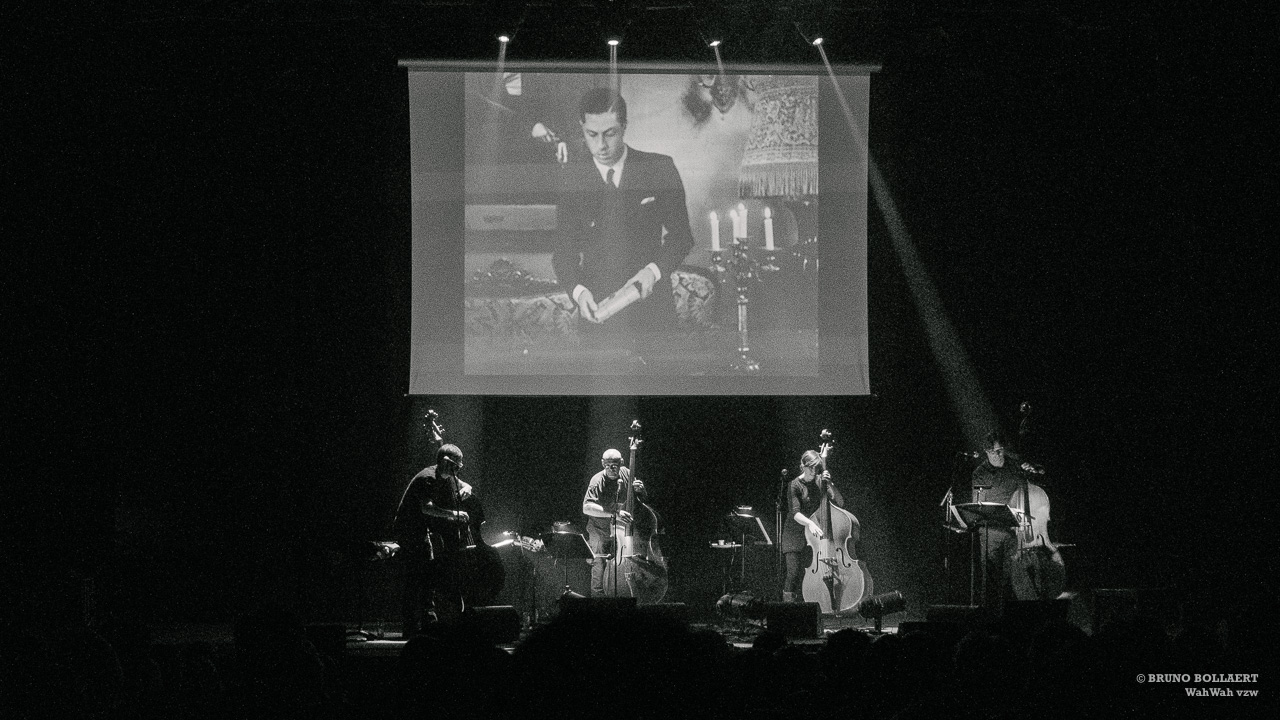
3. **The Shadow of Infidelity and Elvis’s Explosive Temper**Even before their marriage, the shadow of Elvis’s alleged infidelities loomed large. Priscilla, still a young woman, was acutely aware of the highly publicized rumors surrounding his relationships with co-stars, most notably Ann-Margret. When she confronted him about these whispers, Elvis quickly dismissed them, claiming they only served as publicity for his film ‘Viva Las Vegas.’ This explanation, while perhaps convenient, did little to quell the underlying anxieties and trust issues that were beginning to fester in their relationship.
The dismissive attitude towards the rumors gave way to a more concrete and painful reality. In her memoir, Priscilla explicitly states that she discovered letters from other women that “essentially confirmed his unfaithfulness.” This direct evidence of his betrayals was a deeply wounding experience, shattering the illusion of fidelity and creating an undeniable rift in their bond. It was a personal blow that forced her to confront the true nature of their unconventional partnership.
Beyond the affairs, Priscilla also witnessed a more volatile side of Elvis. The context notes that she “witnesses bouts of Elvis’ explosive temper, followed by remorse and excuses.” This emotional rollercoaster would have been incredibly challenging for anyone, let alone a young woman navigating a complex relationship with a demanding superstar. The unpredictable outbursts, followed by apologies, created an unsettling cycle that undoubtedly took a toll on her well-being.
The strain of his unfaithfulness eventually pushed Priscilla to seek solace elsewhere, leading to her own affair with her karate instructor, Mike Stone. The revelation of this affair, according to her memoir, provoked an alarming reaction from Elvis. It is alleged that Elvis “later threatened to kill Stone,” though he “eventually abandoned the idea.” This chilling detail underscores the intensity of his possessiveness and the dangerous, unpredictable depths of his emotional responses.
Ultimately, the continuous cycle of infidelity, explosive anger, and the subsequent attempts at reconciliation chipped away at the foundation of their love. The glamour and excitement of being Mrs. Presley were increasingly intertwined with emotional turmoil and a pervasive sense of control. These deep-seated issues laid the groundwork for the eventual unraveling of their marriage, making it clear that their love story was far more complex and challenging than many had initially perceived.
Read more about: Priscilla Presley Uncensored: Her Shocking Truths on Elvis, Motherhood, and Unseen Struggles
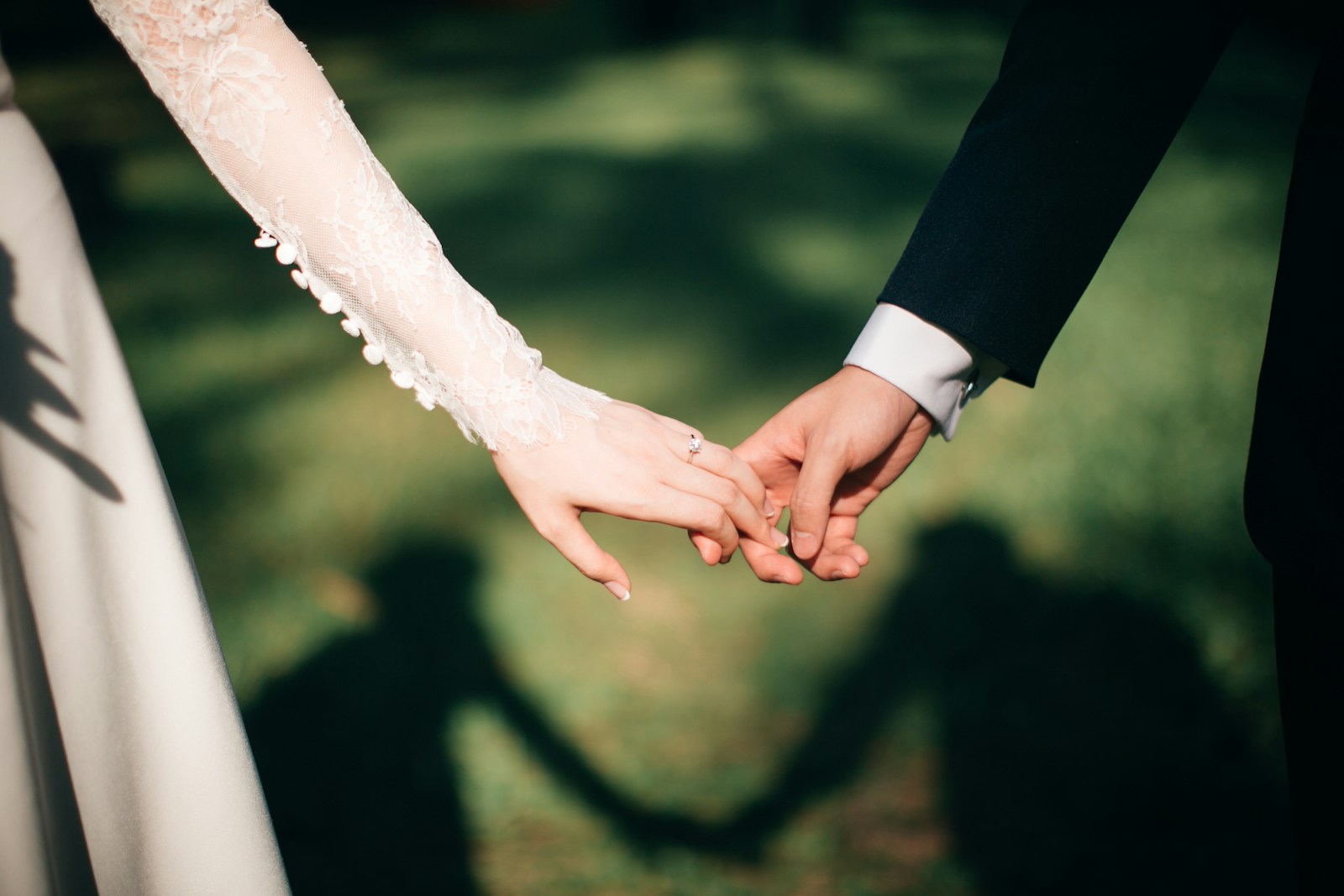
4. **The Unraveling of a Royal Romance and Priscilla’s Quest for Self**As the gilded cage of Graceland became more confining, the romantic ideal that had drawn Priscilla to Elvis began to fray, particularly within the most intimate aspects of their lives. Despite her efforts to entice him, Elvis often stated she was too young for ual intimacy, though he eventually conceded to “do other things” sexually. This early dynamic hinted at the complexities and power imbalances that would continue to define their private world, even as they moved towards marriage.
Their wedding in Las Vegas in May 1967 was a grand affair, yet the whirlwind soon gave way to new pressures. Priscilla quickly became pregnant, a development that delighted Elvis, but left her concerned about their plans for travel and time alone as a couple, dreams Elvis assured her could happen later. However, the realities of his superstar life, coupled with his ongoing prescription drug abuse, frequent physical absences, and persistent affairs, placed immense strain on their marriage, pushing them further apart.
By February 1968, their daughter, Lisa Marie, was born, arriving just as Elvis was gearing up for his iconic NBC comeback special. This period marked a significant shift; Elvis grew increasingly distant, and the couple found themselves leading increasingly separate lives. The emotional chasm widened, making it clear that the once-enchanting fairy tale was steadily losing its luster, replaced by a sense of longing and disconnect.
Ultimately, Priscilla knew she needed a different path. When she eventually articulated her plans for divorce, Elvis directly asked if she was leaving him for another man. Her response was clear and resolute: she sought an independent life for herself. With a poignant farewell visit to Graceland’s housekeepers and his beloved grandmother, Dodger, Priscilla drove away, leaving behind the throngs of fans at the gates and the life of Mrs. Presley, formally divorcing on October 9, 1973. It was a decisive step towards reclaiming her own identity.

5. **An Unbreakable Bond: Love Beyond the Marriage**Even after the official end of their marriage, the connection between Priscilla and Elvis proved to be far more profound and enduring than a mere legal document could sever. In her recent memoir, ‘Softly, As I Leave You: Life After Elvis,’ Priscilla shares a deeply personal perspective, revealing that she continued to love and worry about Elvis long after their split. This sentiment underscores the emotional depth of their relationship, highlighting that some bonds transcend the conventional boundaries of marriage.
Remarkably, Priscilla reflected on their post-divorce relationship with a profound sense of liberation, writing that “the relationship was better because we were now free.” This suggests that the pressures and constraints of their unconventional marriage had been lifted, allowing a more authentic and less fraught connection to flourish. It was a space where genuine affection could exist without the weight of expectations and public scrutiny.
In a testament to the unique place Elvis held in her heart, Priscilla candidly admits that she found “true love” with him. She penned a moving declaration in her memoir, stating, “Even though we divorced, Elvis and I remained together spiritually until he died.” This spiritual continuity, coupled with their shared commitment to co-parenting Lisa Marie, meant that they remained intertwined until Elvis’s untimely death in 1977. Their story became a powerful example of how love, in its many forms, can endure even after a separation.
Read more about: Beyond the Starlight: Robert Redford’s Untold Heartbreak and the Women Who Shaped His Life

6. **Priscilla Forges Her Own Path: Business Acumen and Stardom**With her marriage to Elvis behind her, Priscilla Presley embarked on a remarkable journey of self-discovery and professional triumph, proving herself to be far more than just the King’s ex-wife. Just two years after his death, she stepped into the challenging role of executor of Elvis’s estate, including the iconic Graceland. Displaying exceptional business acumen, she transformed Elvis Presley Enterprises into a hugely profitable venture, opening Graceland to the public in 1982 and expanding the company into shopping centers and an automobile museum by the late 1980s. This strategic vision cemented her legacy as a shrewd businesswoman.
Her ambition wasn’t limited to the boardroom. Priscilla also pursued an acting career, building upon a few earlier TV appearances during her marriage. In 1983, she joined the cast of the wildly popular nighttime soap opera ‘Dallas,’ quickly winning a Soap Opera Digest Award for her portrayal of Jenna Wade Krebbs. Her acting career truly flourished with her starring roles opposite Leslie Nielsen in the beloved ‘Naked Gun’ movie franchise between 1988 and 1994, showcasing her comedic talent to a global audience.
Beyond her public career, Priscilla also nurtured her personal life. Although she never remarried, she entered into a long-term relationship with Italian screenwriter Marco Garibaldi in 1984, and together they welcomed a son, Navarone Garibaldi Garcia, in 1987. Though their relationship eventually concluded in 2006, this period highlighted her embrace of a full life beyond her association with Elvis.
Her entrepreneurial spirit continued to thrive through the late 1990s as she launched her own lines of fragrances, clothing, and skincare products. By 2002, she announced plans to co-produce a musical theater production, ‘Elvis and Priscilla,’ further testament to her ongoing creative endeavors. A few years later, in 2008, she surprised and charmed audiences with her dancing prowess as a contestant on Season 6 of ‘Dancing with the Stars,’ showcasing her vivacity and willingness to take on new challenges, firmly establishing her as a versatile and enduring public figure.

7. **’Priscilla’ on Screen: Lisa Marie’s Heartfelt Concerns and Public Reaction**Sofia Coppola’s 2023 biographical drama ‘Priscilla,’ based on Priscilla Presley’s 1985 memoir ‘Elvis and Me,’ offered a fresh cinematic lens into their complex relationship, with Priscilla herself serving as an executive producer on the film. While the movie aimed to present Priscilla’s unique perspective, its portrayal of Elvis sparked a deeply emotional and publicly documented reaction from their daughter, Lisa Marie Presley, even before her passing in January 2023.
In poignant emails exchanged with Coppola, later obtained by Variety, Lisa Marie expressed profound concerns about the film’s script, stating unequivocally, “My father only comes across as a predator and manipulative.” She added, “As his daughter, I don’t read this and see any of my father in this character. I don’t read this and see my mother’s perspective of my father. I read this and see your shockingly vengeful and contemptuous perspective and I don’t understand why?” These words underscored the painful divergence in how family members interpreted the same foundational story.
Coppola, in explaining her vision, revealed her long-standing interest in Priscilla’s memoir, aiming to capture what it felt like “to grow up as a teenager in Graceland,” an “amplified world—kinda similar to Marie Antoinette.” The film, starring Cailee Spaeny and Jacob Elordi, garnered generally positive reviews, with critics praising Spaeny’s sensitive performance and the film’s exploration of themes like the isolation of fame, femininity, and the idea of “privilege without power.” Many reviews highlighted how the actors deftly portrayed the vast power disparity inherent in Priscilla and Elvis’s relationship.
This film also invited comparisons with Baz Luhrmann’s 2022 biopic ‘Elvis.’ As Anthony Lane of The New Yorker eloquently put it, “We need both movies, I would argue: last year’s frenzied act of worship and now this irreverent response, all the more potent for being so still and small.” This encapsulates the differing narrative approaches—one a celebratory spectacle, the other a more intimate, unvarnished look at a challenging reality. Priscilla’s own involvement as an executive producer lends a crucial layer of authenticity to this particular telling.
The complexities of the Presley family dynamics continued even after the film’s release and Lisa Marie’s tragic death. A legal challenge over Lisa Marie’s will led to an estate dispute between Priscilla and her granddaughter, Riley Keough. The settlement ultimately saw Riley become the sole trustee of Graceland, with Priscilla receiving a $1 million payout, an annual salary as an adviser, and crucially, a burial site at Graceland near Elvis and Lisa Marie. It’s a reminder that the personal stories of this iconic family continue to unfold, forever intertwined with legacy, love, and loss.
Priscilla Presley’s journey is truly a testament to resilience and reinvention. From the whirlwind romance with a superstar that captivated the world, to navigating the gilded cages of fame, experiencing the pain of a marriage unraveling, and then boldly forging her own path as a businesswoman, actress, and matriarch, her story is rich with human experience. Her new memoir, alongside the renewed cinematic attention, offers us a privileged glimpse into the multifaceted life of a woman who, despite living in the shadow of an icon, ultimately stepped into her own radiant light. Her reflections continue to offer profound insights into a relationship that defined an era, reminding us that even the most glamorous lives are built on very human foundations of love, struggle, and an enduring quest for self.”

